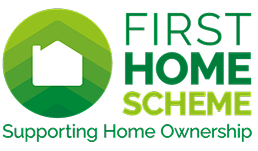MORTGAGES
First Time Buyer
Mortgage Ireland
Are you a first time home buyer seeking expert guidance for your first step onto the property ladder? At MortgageLine, we specialise in securing the best first time home buyer loans and sourcing the best mortgage rates for first time buyers in Ireland. Our dedicated mortgage brokers are with you every step of the way, providing tailored advice and support.
Higher Borrowing Limits for First Time Buyers
As a first time buyer, you can usually borrow up to 4 times your gross annual income, compared to 3.5 times for other borrowers. This gives you more flexibility when applying for a first time buyer mortgage. Even if you’ve inherited a property (without a mortgage) or are recently divorced, you may still qualify.
Government Support Available
When buying a new home, first time buyers can access government support schemes designed to make homeownership more accessible:
Help to Buy – Offers tax relief and funding for new build or self-build homes.
First Home Equity Scheme – Provides shared equity support to reduce the amount you need to borrow.
Looking to get on the ladder?
With so many mortgage lenders and a range of first time buyer mortgage rates available, finding the right deal can be overwhelming. At MortgageLine, we make the process straightforward, offering access to the best mortgages for first time buyers, including options for those with low deposits.
Free Mortgage Review: Assess your financial readiness.
Expert Advice: Get step-by-step guidance from application to completion.
Exclusive Rates: Including green mortgages for energy-efficient homes.
Did you know?
As a first-time buyer, you can access higher mortgage amounts (up to 4 times your income) and benefit from government schemes like the Help to Buy and First Home Equity Schemes when purchasing a new home.

First Time Buyer Mortgage Calculators
Planning to buy your first home in Ireland?
Our first time buyer mortgage calculator is designed to help you estimate your monthly repayments based on your income, deposit, and typical first time buyer mortgage rates.
Whether you’re exploring your options or ready to apply for a first time home buyer loan, this tool gives you a clear picture of what your repayments could look like—so you can plan with confidence.

How Do First Time Buyer Mortgages Work? A Timeline
Get Mortgage Ready
– Build savings in a dedicated mortgage account.
– Ensure regular payments (such as rent) are clearly recorded.
– Maintain clean banking records with no missed payments.
Apply Online & Speak with a Broker
– Use our secure portal to start your first time home buyer mortgage application.
– Get an estimate of how much you can borrow with our mortgage calculators.
Get Approved & Start House Hunting
– Receive Approval in Principle for up to 6-12 months.
– Start searching for your ideal home within your budget.
Secure Your Loan & Complete the Sale
– Once your offer is accepted, we finalise your formal loan offer and assist with legal formalities.
Types of First Time Buyer Mortgages Available
Fixed Rate Mortgages
−A fixed rate mortgage keeps your interest rate and monthly repayments the same for a set period (typically 2 to 10 years). This gives you certainty and helps with budgeting, as you’re protected from interest rate changes during the fixed term. However, if rates drop, you won’t benefit from lower payments, and there may be fees for early repayment or switching.
Variable Rate Mortgages
+With a variable rate mortgage, your interest rate can go up or down over time, depending on your lender’s Standard Variable Rate (SVR) and market conditions. This type of mortgage offers flexibility—you can usually make extra payments or pay off your loan early without penalties. If you’re planning to pay off larger amounts in the near future, this option could be ideal. However, as rates can change at any time, your monthly repayments may go up or down, making this mortgage less predictable than a fixed rate.
Discount Rate Mortgages
+A discount mortgage gives you a lower interest rate for an initial period (usually 1 to 5 years), based on a discount off the lender’s SVR. It’s a good way to reduce your early repayments, but since it’s tied to a variable rate, your payments can still change month to month. Some lenders offer discounted fixed rates for larger mortgages (over €250,000).
Green Mortgages
+A green mortgage offers a lower interest rate if you purchase a highly energy-efficient home—typically one with a Building Energy Rating (BER) of B3 or better. These first time buyer mortgage options are available to first time home buyers and can help you save on your monthly repayments while supporting sustainable living. They’re a great option if you're buying a newer or more eco-friendly property. Ask your MortgageLine Adviser about the green mortgage rates available to you as a first time buyer.


Government Schemes Available for First Time Buyers

Help to Buy Scheme
Eligible first time buyers can receive up to €30,000 or 10% of the purchase price (whichever is lower) towards the cost of a newly built home. This first time buyer loan support is aimed at making homeownership more affordable.
Key conditions:
- The property value must not exceed €500,000.
- Mortgage must cover at least 70% of the property’s price.
- You must be purchasing a new build.

First Home Scheme (FHS)
The First Home Scheme provides additional financial support via shared equity, allowing first time home buyers to cover up to 30% of the purchase price (or 20% if combined with Help to Buy).
Key benefits:
- Minimum equity share of 2.5% or €10,000.
- Applicable to new builds across Ireland.
- Can be used alongside Help to Buy for maximum benefit.
Get Pre-Approved for a Mortgage
Apply Online
Click “Apply Now” to request a callback and begin your first time home mortgage journey. You’ll be assigned your own dedicated Mortgage Adviser, who will guide you through every step of the process.
Simply complete our secure online application form at your convenience—no paperwork, no stress.
Schedule Your Free Mortgage Review
Once your application is submitted, a member of our team will contact you to arrange a free, no-obligation mortgage review.
This can take place by phone, video call, or in person—whichever suits you best.
Discuss Your Mortgage Options
During your review, we’ll discuss your financial situation, walk you through the mortgage loans for first time home buyers available, and answer any questions you have.
We’ll also help you understand how to get mortgage-ready and how much you can borrow—whether you’re ready now or preparing for later.
Important Information on Mortgage Regulations and Risks
Mortgage Regulations
If you’re applying for a first time buyer mortgage in Ireland, it’s important to understand the key lending rules set by the Central Bank of Ireland. These mortgage regulations are designed to promote responsible borrowing and long-term financial stability for both lenders and buyers.
Key Lending Limits for First Time Home Buyers
There are two main rules that apply to mortgage loans for first time buyers:
- Loan-to-Income (LTI) Limit: As a first time home buyer, you can typically borrow up to 4 times your gross annual income. This is higher than the standard 3.5 times income allowed for other borrowers.
- Loan-to-Value (LTV) Limit: You must provide a minimum deposit of 10%, meaning you can borrow up to 90% of the property’s value.
These limits apply whether you’re applying for a standard first home buyer mortgage or through a first time buyer scheme such as Help to Buy or the First Home Scheme.
The Central Bank regularly reviews these measures to ensure they remain suitable for Ireland’s housing market and economic conditions. The most recent changes, introduced in January 2023, reflect updated guidance to support sustainable homeownership.
Mortgage Warnings
When applying for a first time home buyer loan, it’s essential to be aware of the potential risks and responsibilities involved:
- Failure to meet your repayments may lead to the loss of your home.
- Early repayment charges may apply on fixed-rate mortgage loans.
- Missed repayments will result in arrears and can damage your credit rating.
- Long-term borrowing may lead to higher total repayment costs.
- Monthly repayments may increase, especially on variable rate mortgages.
- At the end of an interest-only period, you will still owe the full amount borrowed.
- Lenders can change rates on variable mortgage products at any time.
Always consult a qualified mortgage broker before committing to a first time home owner mortgage, especially if you’re unsure which loan type is best for your needs.
Frequently Asked Questions
Our clients frequently ask us various questions. Some of them are listed below:
How much deposit do I need as a first time buyer in Ireland?
First time buyers must typically provide a minimum deposit of 10% of the property’s purchase price. This is a key requirement under the Central Bank’s mortgage rules.
Who qualifies as a first time buyer?
To qualify, you must never have owned residential property in Ireland or abroad. There are exceptions for inherited homes or those no longer named on a family property due to separation.
How much can I borrow as a first time buyer?
As a first time buyer in Ireland, you can usually borrow up to 4 times your gross annual income, with a loan-to-value limit of 90%.
What are the best mortgage companies for first time buyers?
We work with a wide network of trusted lenders to match you with the best mortgage company for first time buyers, based on your goals, deposit, and income.
Ready to Begin Your Journey?
Whether you’re wondering how do first time buyer mortgages work or searching for the best deals for first time home buyers, MortgageLine is here to help.




